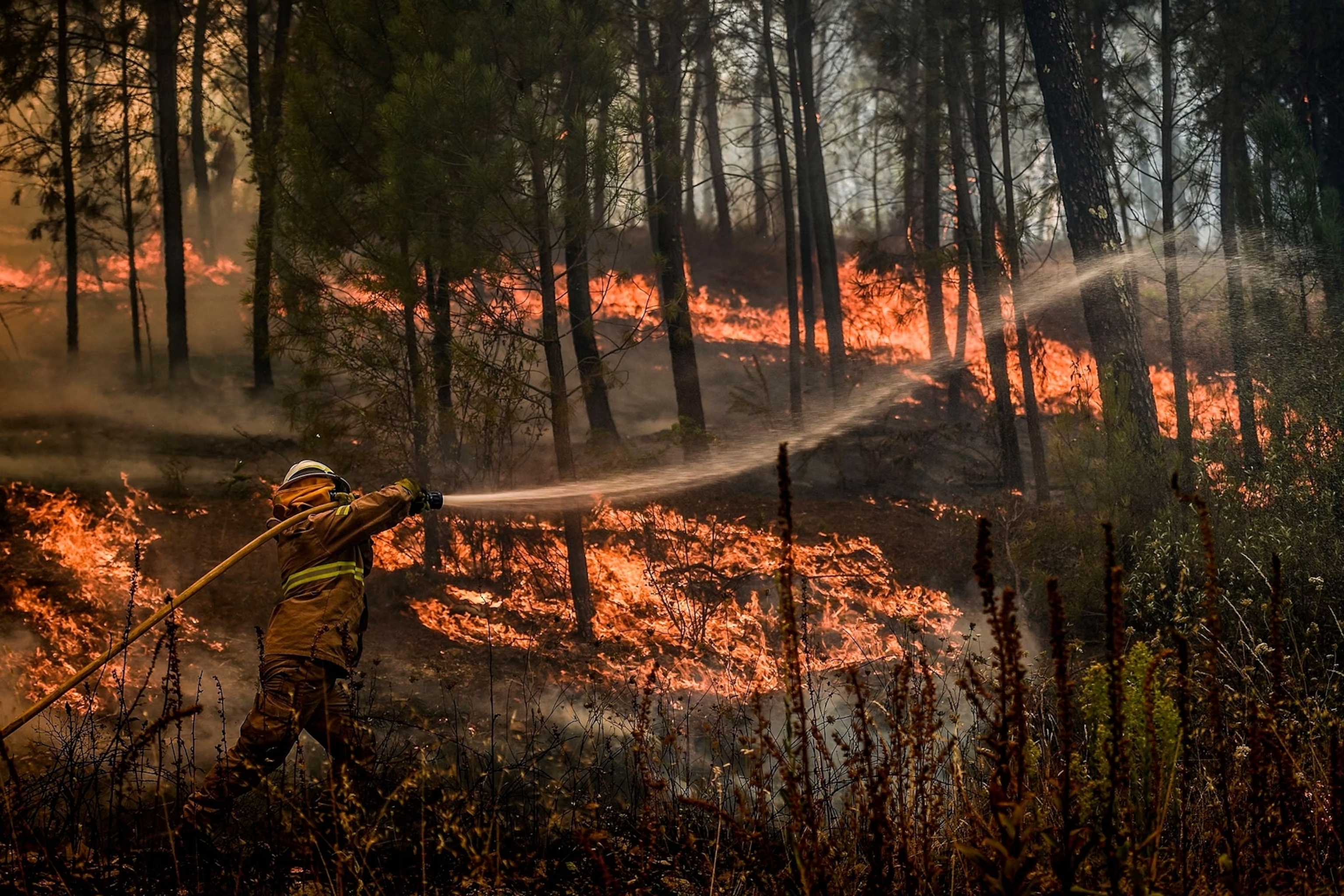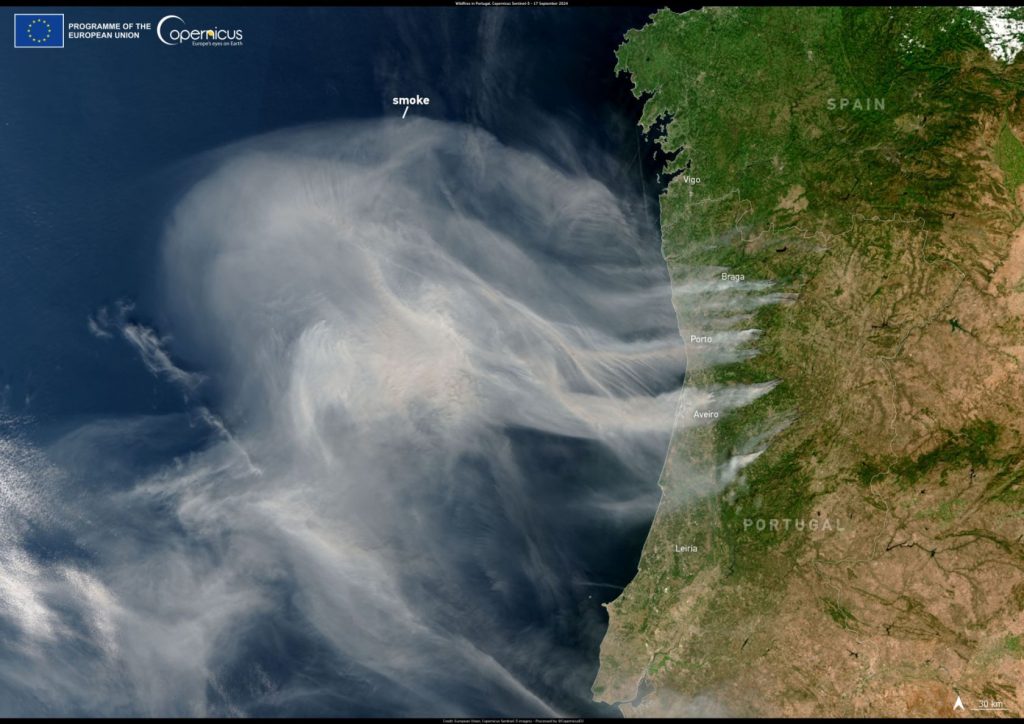In September 2024, Portugal has been engulfed in one of its worst wildfire seasons in recent history, with over 145,000 hectares scorched and at least seven lives lost. Hard-hit regions such as Aveiro, Porto, and Viseu have seen entire villages evacuated as fires ravaged homes and infrastructure. The fires have injured over 160 people, forced road closures, and blanketed large parts of the country in thick smoke.
The Scale of Destruction
The hardest-hit regions include Viseu, Aveiro, and Porto, where entire villages have been evacuated and thousands of hectares reduced to ash. The Viseu Dão Lafões region alone saw over 50,000 hectares burned, while areas between Porto and Aveiro accounted for more than 24,000 hectares of destruction. The fires have left a grim toll: 161 people injured and dozens of homes turned to rubble. Roads have been closed, schools shut down, and vital infrastructure severely disrupted. The wildfires have created a vast smoke cloud stretching across 100,000 square kilometers, a testament to the scale of devastation.

In response, Portugal has deployed more than 5,000 firefighters and 1,500 fire engines to the affected areas, but the country has still struggled to contain the flames. With temperatures soaring and winds spreading embers far and wide, efforts to control the fires have been repeatedly hampered.
Prime Minister Luís Montenegro declared a state of calamity, highlighting the extreme pressure on firefighters and urging police to intensify investigations into suspected arson. “We are well aware that these difficult hours are not over yet,” Montenegro stated, emphasizing the need for continued vigilance.
The Associated Press, September 19, 2024 at 3:58 AM
However, recent data offers a glimmer of hope, as the pace of destruction has begun to slow, with a noticeable reduction in the daily increase of burned hectares.
International Support and Solidarity
Faced with this overwhelming crisis, Portugal has received much-needed international assistance. The European Union (EU) has activated its Civil Protection Mechanism, mobilizing additional resources to support firefighting efforts. Eight aircraft from France, Greece, Italy, and Spain have joined the battle, offering aerial support to firefighters on the ground. Spain, Portugal’s closest neighbor, has also sent in ground reinforcements, while the EU’s Copernicus Emergency Management Service has provided critical satellite-based mapping to help local authorities track the fires and direct resources more efficiently.
These international collaborations have proven vital in curbing the advance of the flames, although the situation remains precarious. High temperatures and dry winds continue to create a high risk of new outbreaks. As the fires persist, Portugal’s government has declared a state of emergency in the most affected regions and is working to secure more resources to prevent further damage.
Climate Change and Human Impact
The devastating scale of the 2024 wildfires has reignited discussions about the role of climate change in exacerbating natural disasters. Portugal, like much of southern Europe, has become increasingly vulnerable to wildfires due to rising global temperatures and recurring droughts.

These conditions, coupled with land mismanagement and a pattern of suspected arson attacks, have created a perfect storm for the current crisis. In recent weeks, authorities have reported a suspicious increase in nighttime ignitions, leading to investigations into potential criminal activity.
A Glimmer of Hope Amidst the Flames
While the situation remains critical, Portugal’s resilience, combined with international support, offers a chance to overcome this crisis. However, the fires of 2024 serve as a stark reminder of the increasing frequency and intensity of natural disasters worldwide, underscoring the urgent need for stronger climate action and sustainable land management practices.
In the aftermath of the fires, Portugal will face a long road to recovery, but the spirit of collaboration and determination displayed by the nation’s firefighters, citizens, and international allies offers hope for rebuilding a more resilient future













